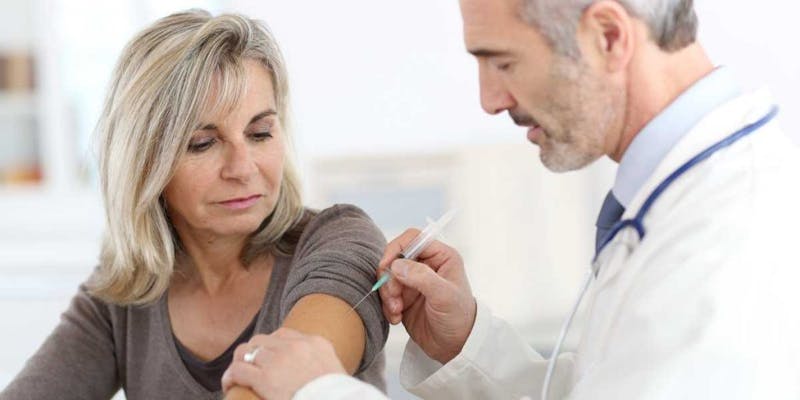
On the other hand, when we vaccinate we avoid contagion, so, besides protecting us, we take care of our families, friends, co-workers and the whole society.
There are diseases practically eradicated in the world thanks to the vaccination but, if we stop applying them or we do not complete the amount of doses, both these and other conditions will spread again.
Many serious complications and sequelae, hospitalizations and deaths could be avoided if more adults knew about and demanded vaccination. Of course, the medical evaluation of each case is always necessary.
It is essential to banish myths and false beliefs, because immunizations are safe and effective, in fact, they are just as important as good nutrition, rest, and exercise to keep the body healthy.
To remember
The vaccines in adults are:A rightA responsibilityA way to take care of our health by preventing various diseasesA way to protect those we love, by avoiding contagionA commitment to people with risk factors: babies, children, pregnant women, the elderly or the sickAn obligation for health workers, teachers, nursery or geriatric employeesA requirement for over 65-year-old, pregnant, postpartum, transplant patients, patients with chronic conditions (respiratory, cardiac, renal, hepatic, metabolic like diabetes), immunocompromised, including HIVA need to enjoy healthier journeys and not to interrupt daily activities or work
Types of vaccines
Those that use a live virus (attenuated). Examples: Antivaricellose or triple viral that protects against measles, mumps, and rubella.
Those that use the virus or bacteria intact but dead (inactivated). They are made from a protein or fragments of a microorganism. Example: anti-flu.
Toxoids, which contain an inactivated toxin produced by the bacteria, immunize against the effects of infection. Examples: anti-tetanus, anti-diphtheria.
Biosynthetic substances with artificial substances (made by man) very similar to portions of viruses or bacteria.
Frequent questions
Are safe?Yes. Like medicines or vitamins, vaccines can produce mild side effects. The most common are pain or tenderness in the area of application, fever. The benefits outweigh the possible risks.
Contraindications?The physician evaluates each patient before indicating them, studying clinical history, vaccines, age and other personal characteristics. It is recommended to avoid its temporary application to those who have a moderate or severe acute illness, and absolutely to those who suffer from allergies to its components, encephalopathy or Guillain-Barré syndrome.
Cause the same symptoms of preventing disease?Vaccines are always better than pathology, they expose the body to a very small and very safe amount of viruses or bacteria (previously weakened or destroyed), exceptionally producing slight adverse effects or classic symptoms of the disease.
Do vaccines cause other long-term diseases?No. It is important to banish myths and emphasize that vaccines do not cause autism, diabetes, multiple sclerosis, allergies, asthma or permanent brain damage.
Do they weaken the immune system?No, vaccines use attenuated versions of microorganisms (viruses or bacteria), not only weaken it but strengthen it by helping it fight against different infections.
>
Share with

